Mo’Nique Makes Peace (Mostly)
- Oops!Something went wrong.Please try again later.

Mo’Nique is beaming. She’s seated on a sofa in the sunlit living room of her Atlanta home, and she’s positively glowing.
“I’m pregnant,” she says after I point out her aura. “No, just kidding.”
More from The Hollywood Reporter
What she is, it turns out, is happy — happier than she’s been in a while, says the 55-year-old Oscar-winning comedian and actress. “I’m grateful for that feeling. When you are good on the inside, I believe it shows up on the outside.
“It’s a new chapter,” she says, “but not because of Hollywood. It’s a new chapter because my babies are graduating high school. It’s a new chapter because my grandson will be going to kindergarten next year, and my granddaughter to the fifth grade. Those things, for me, are the priority.”
But her career, too, is beginning to flourish after an extended fallow period. On Feb. 22, Netflix released a trailer for the comedy special My Name Is Mo’Nique, placing its star back in the public eye after what feels like a very long time.
Mo’Nique’s cherubic face has been popping up elsewhere, as well. She stars in The Reading, a low-budget horror movie now streaming on BET+. And she plays Goldie — a “sophisticated Atlanta strip club owner with swagger and street smarts” — in BMF, short for Black Mafia Family, a Detroit-set crime drama that’s in its second season on Starz.
“It made sense,” she says of her return to the screen. “And it made dollars and cents. And for all those years, it just wasn’t making sense. Back then, I didn’t feel a glow. I felt disappointment. I felt the same injustices and inequalities that all the Black women who came to Hollywood before me felt. Oftentimes people call that anger. They call it bitterness. They call it unstable. They give it all these titles except what it really is.”
That My Name Is Mo’Nique exists at all is a major victory for her roller-coaster career. In 2017, Netflix approached her to star in a special and offered her $500,000 to do so. Mo’Nique was characteristically vocal about how she felt about that — that the sum was discriminatory and indicative of a pattern of underpaying Black women. She pointed to eight-figure deals paid to comedians like Dave Chappelle, Chris Rock and Amy Schumer for comparable work. Netflix abruptly called off the negotiations.
Most artists would probably have moved on at that point. Not Mo’Nique. In 2019, she sued Netflix for failing to negotiate in good faith. Surprising just about everyone but Mo’Nique, a federal judge overseeing the case sided with her. The lawsuit ultimately settled out of court in June 2022. My Name Is Mo’Nique taped four months later in Atlanta, the city she has called home since 2009.
“This one right here is personal,” Mo’Nique teases in the trailer for the special, which debuts globally April 4. “When you walk away from this one, you’ll say, ‘Now we understand that woman.'”
That’s a tantalizing pitch, because Mo’Nique — despite consistently dazzling audiences onstage and onscreen, in everything from her mainstream breakout in 2001’s concert film The Queens of Comedy to her Oscar-winning performance in 2009’s Precious — has, up close and personal, proven a difficult read, even to some of her closest friends.
Take, for instance, Lee Daniels, who directed her to that best supporting actress Oscar in Precious. Before they made the movie, Mo’Nique and Daniels were virtually inseparable. “We knew each other when there were no cameras on, when there was no red carpet,” she says. “We knew each other on 3 a.m. phone calls.”
But something transpired in the run-up to Oscar night that placed a wedge between them. It began as a disagreement over awards campaigning: Daniels wanted the full-court press; Mo’Nique, who was told she would not be paid for such work, wanted a breather from an exhausting schedule (she was also hosting a talk show on BET at the time) to spend time with her husband and manager, Sidney Hicks, and their 4-year-old twin sons (they are now 17; she also has a third son, 32, from her previous marriage to Mark Jackson).
Lionsgate, the studio behind the film, reportedly was incensed that she refused to participate in what they felt was a crucial leg of the promotional cycle. Oprah Winfrey and Tyler Perry, both executive producers on Precious, reluctantly entered the squabble, to no avail.
In the end, Mo’Nique and Daniels did not speak for 13 years. In a 2015 THR interview for a story about Hattie McDaniel — the first Black actor to win an Academy Award, for Gone With the Wind, to whom Mo’Nique touchingly paid tribute in accepting her own Oscar — Mo’Nique alleged Daniels had “blackballed” her from working in Hollywood. She would repeat the allegations in the years to follow, also accusing Winfrey and Perry of having joined forces with Daniels to further rumors that she is a “difficult” performer. (Winfrey and Perry declined to comment for this story.)
But there appear to be the beginnings of a thawing, at least on Daniels’ part. If there was a turning point, it was probably the moment he surprised Mo’Nique in the spring of 2022 with an offer to replace Octavia Spencer — who could not make the shoot work with her schedule — in The Deliverance, an upcoming horror film for Netflix starring Glenn Close. He then joined Mo’Nique onstage at a concert date in Staten Island and publicly apologized to her.
Mo’Nique calls this new era “a chapter of forgiveness.”
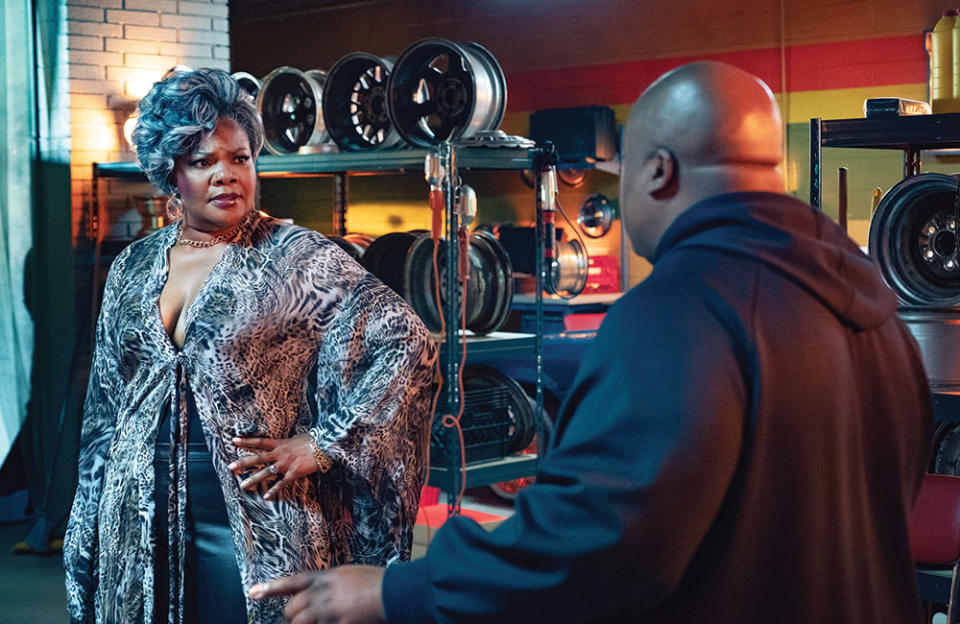
***
Mo’Nique and Daniels met in 2004 at Reign, a now-shuttered soul food restaurant on Robertson Boulevard in Los Angeles owned by NFL wide receiver Keyshawn Johnson. Mo’Nique was already a well-known commodity in Hollywood, having starred in the UPN sitcom The Parkers for five seasons; Daniels had worked in casting and actor management before striking it big by producing 2001’s Monster’s Ball. “Lee comes up to me and says, ‘I have something for you that I know you’re going to do amazing,'” Mo’Nique recalls in one of several Zoom conversations from her Atlanta home. “I said, ‘Thank you.’ That was it. No more conversation. A few months later, here comes a call from someone named Lee Daniels for a movie named Shadowboxer.'”
An outrageous crime thriller shot in saturated colors, 2005’s Shadowboxer was Daniels’ first directorial effort and follows a pair of contract killers who happen to be stepmother and son, and also happen to be lovers. They are played by Helen Mirren and Cuba Gooding Jr., and the two engage in a particularly graphic sex scene in a graveyard. In Shadowboxer, Mo’Nique played Precious (no relation to Daniels’ later film of that name), a drugged-out nurse who sleeps with her doctor colleague, played by Joseph Gordon-Levitt. The film was trashed by critics but established Daniels’ no-holds-barred voice and set the stage for future successes.
“I saw a genius,” says Mo’Nique of observing Daniels at work. “I saw someone who was fearless, such a visionary, someone unafraid to put these characters together unapologetically. You had Helen Mirren and Cuba Gooding lying in a cemetery, pumping. What are you doing, Mr. Daniels? It was so refreshing and breathtaking.”
***
Shadowboxer was the start of a beautiful friendship between Mo’Nique and Daniels. “We never stopped communicating,” she says. A few years later, Daniels sent Mo’Nique a script with an unwieldy title: Push: Based on the Novel by Sapphire (later changed to Precious: Based on the Novel “Push” by Sapphire to avoid confusion with another film called Push), a drama about a 16-year-old Harlem girl raised by a monstrously abusive mother. Daniels wanted Mo’Nique to play the mother.
“It was like, ‘Lee, what the hell is this?'” Mo’Nique recalls of her reaction to the shocking script, in which the teen (who would be played by Gabourey Sidibe) is raped repeatedly by her father, resulting in two full-term pregnancies, before receiving an HIV diagnosis. “He was like, ‘I know, right?’ We’ve always been those two kids on the playground saying, ‘You going to do it? All right — if you push, I push.’ We’ve always been that.”
Precious premiered to an ecstatic reception at Sundance on Jan. 15, 2009. It then screened at Cannes in May, where it received a 15- minute standing ovation. Cannes, however, is where the rift between Daniels and Mo’Nique began, after she had refused to board a flight to France to attend the festival screening or submit to further promotions as long as Lionsgate refused to pay her. Calling from Cannes, she recalls, Daniels told his star, “Mama, I agree with what you’re saying. I just don’t think it’s going to play out good for you.” Mo’Nique refused to budge. “And that was a problem,” she recalls. “The problem of ‘How could this fat Black woman say no to the powers that be in Hollywood?'”
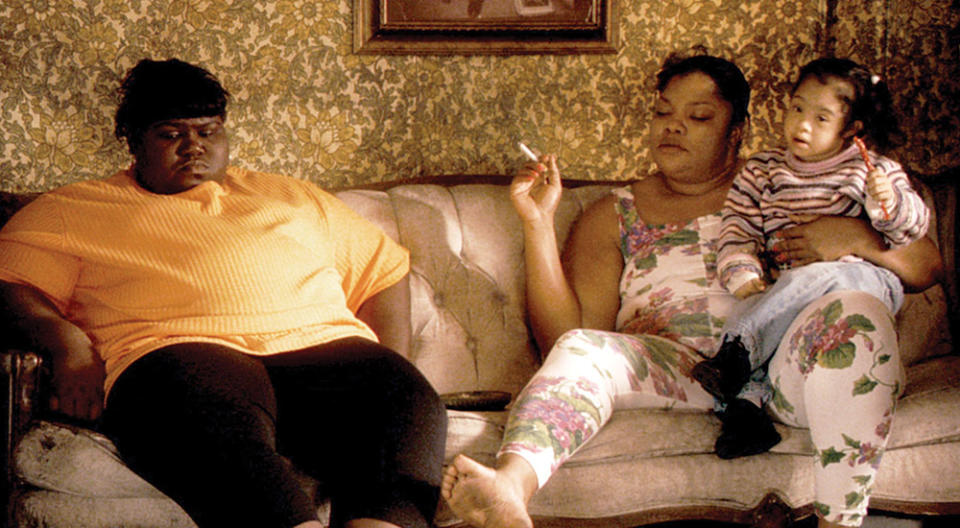
“Flying to France to promote your turn in this hit movie sounds kind of fun,” I respond. “Why didn’t you want to do that?”
Mo’Nique emits a belly laugh. “As I explained to Oprah Winfrey, I said, ‘Oprah, I’m doing a talk show. I’m doing a comedy tour. I have a husband and I have babies. I have a little bit of downtime and I’m going to take advantage of it. So I’m not going anywhere because I’m not obligated to go anywhere. I’ve done my part,'” she says. “So we mutually agreed to disagree. That was it. Next thing I know, I am considered ‘difficult’ and ‘hard to work with.’
“It was my third marriage,” Mo’Nique continues. “My second round of children. So I understood by then that when you sacrifice everything for a place called Hollywood, you wind up being by yourself. I know the history before me. I know those stories. And not only did those women die broke, they died brokenhearted. They died lonely because they gave everything to a business — and in the end it gave them nothing.”
***
At the 87th Academy Awards, held March 7, 2010, at the Kodak Theatre (renamed the Dolby Theatre in 2012), Mo’Nique wore a ruched royal blue gown by Tadashi Shoji with white gardenias in her hair — a tribute to McDaniel, who wore the same flowers when she accepted her Oscar in 1939.
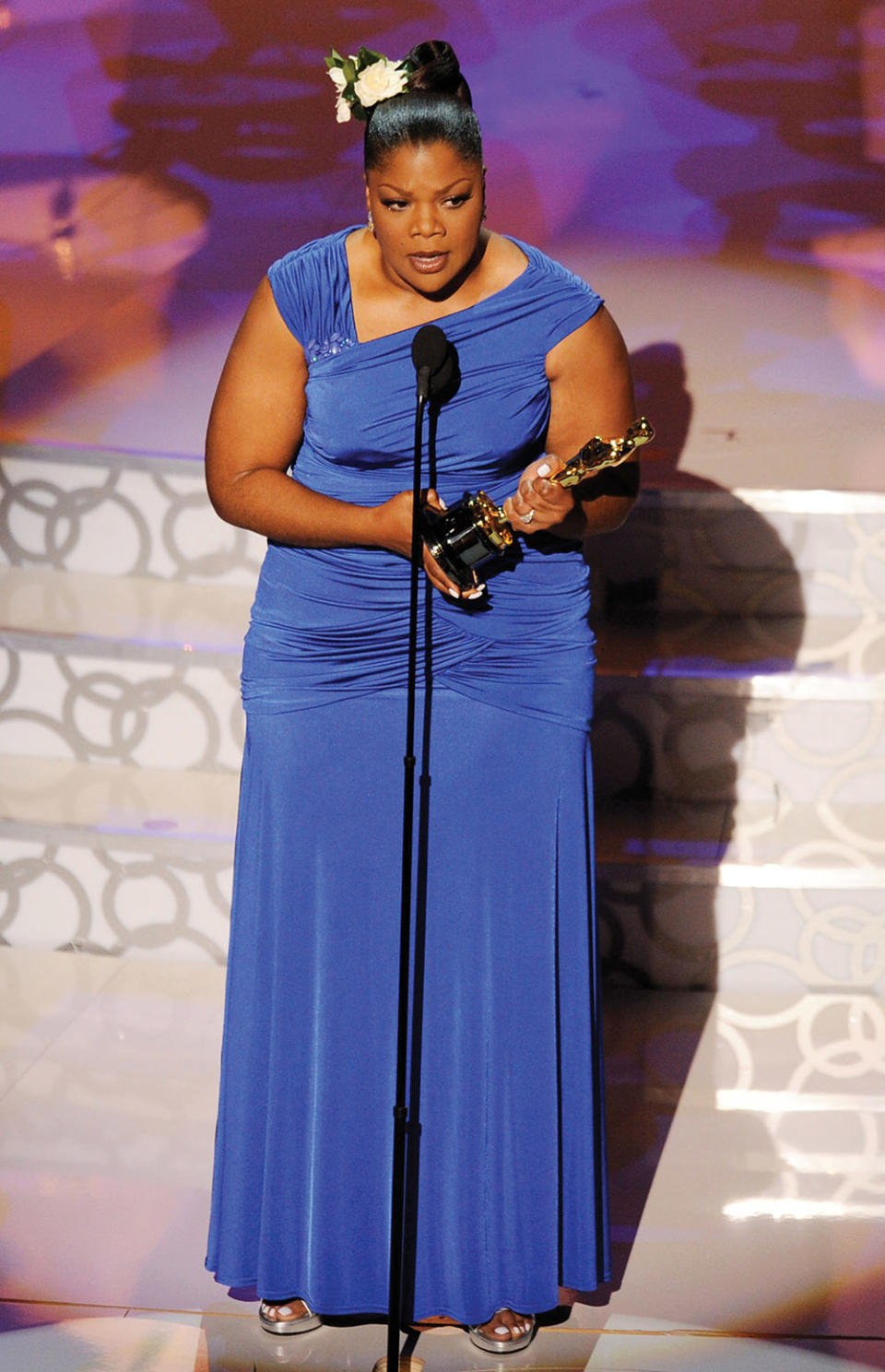
“First, I would like to thank the Academy for showing that it can be about the performance and not the politics,” Mo’Nique said onstage, earning applause, before turning her thoughts to McDaniel, whom she thanked “for enduring all that she had to, so that I would not have to.” She mentioned Winfrey and Perry in her Oscar speech — “because you touched it the whole world saw it,” she said — but did not utter Daniels’ name, incensing him.
Despite the victory, Mo’Nique says she received a chilly reception from her collaborators. After waiting 40 minutes to take a group photo with the evening’s winners, she decided she’d had enough of the Oscars and went back to the hotel with Hicks to put her twin sons to bed. “So when y’all see the photo from the year that I won, I’m not in the picture,” she says.
The next morning, Mo’Nique and Daniels had a brief, stilted conversation. Soon after that, she presented him with an award at an LGBTQ event. Mo’Nique assumed the tensions had passed. Several months later, he made her an offer to join the cast of The Butler.
The 2013 film starred Forest Whitaker as Cecil Gaines, a real-life African American butler who served for 34 years in the White House. But the part Daniels proposed — Gloria Gaines, Cecil’s wife — ultimately went to Winfrey.
Daniels and Mo’Nique did not communicate after that for several years. But he eventually did reach out, saying he wanted her for the part of Cookie Lyon, the matriarch of a music dynasty, in Fox’s frothy Empire — a part that instead went to Taraji P. Henson. Around that time, Butler screenwriter and Empire co-creator Danny Strong tweeted, “Mo’Nique was never offered roles in Empire or The Butler. #SettingRecordStraight.” But Daniels confirms that he wanted Mo’Nique for both parts. “Yes, I did,” he says. “But I didn’t have the power to hire her. There were studios and other producers involved.”
There would be more bad blood to come — particularly where Winfrey was concerned. In 2014, Mo’Nique was invited to the Santa Monica home of actress Alfre Woodard for a party in honor of Lupita Nyong’o, who had just been Oscar-nominated for best supporting actress for 12 Years a Slave. “They invited you if you were a Black woman who had won or been nominated for an Oscar,” Mo’Nique explains. “We all had to tell Lupita what our experience was and share in an upliftment get-together.”
It was the first time since the 2010 Oscars that Mo’Nique and Winfrey would occupy the same room. A month after those Oscars, Winfrey hosted Mo’Nique’s family, but not Mo’Nique, on an episode of The Oprah Winfrey Show. On it, Mo’Nique’s eldest brother, Gerald Imes, confessed to molesting Mo’Nique when she was 7 and he was 13; the sexual abuse lasted for several years, he said.
The sexual abuse was not a secret: Mo’Nique had referenced it while doing press for Precious, saying she returned to those dark places to play Mary. But with Mo’Nique’s fame peaking post-Oscars, Winfrey called her to inform her that her “brother had called her and he wanted to come on the show to let her know how parents can watch out for predators,” Mo’Nique says. “She then said, ‘Do you want to come on the show, because he wants to apologize to you?’ I said, ‘Oprah, I don’t want no part of that.'”
Mo’Nique did, however, give Winfrey her blessing to tape the show with her brother. But when it aired on April 19, 2010, she was horrified to see other family members featured in the episode. Not just her brother — who had served 15 years in jail for a different sex offense — but her mother, Alice Imes, her father, Gerald Imes Sr., and another brother, Stephen Imes, who downplayed the abuse on the show, telling Winfrey, “It really isn’t what it looks like. It’s blown out of proportion.”
Mo’Nique maintains that she and Winfrey “had a lengthy conversation” before the episode in which she detailed how she and her mother “were not on good terms. We weren’t even speaking. Then I see the show and I can tell that my mother is trying to make a dollar. I know my family.” Feeling betrayed, she tried to contact Winfrey to convey her disappointment. “I reached out to everybody I could to try to get to Oprah,” Mo’Nique says. “No. Nothing. It just went dead.”
That is, until the party in Nyong’o’s honor. Spotting Winfrey on a sofa on the second floor, Mo’Nique took a seat next to her. “I said, ‘You know we’re going to have to talk, right?’ She said, ‘Mm-hmm.’ And I just patted her on her knee and got up,” she recalls.
Later, the invitees were gathered to address Nyong’o. “When it came to me to speak about my Oscar journey, I said, ‘Lupita, run your race the way you want to run it, baby. Because when you get to the end of it, you should have no regrets,'” Mo’Nique recalls.
She continues: “Oprah Winfrey was sitting on my right. And then I turned to her and said, ‘Now I need to talk to you.’ There were some phenomenal Black women there. You could have heard a pin drop. I said, ‘Since you didn’t want to return my calls, for whatever reason, I’m going to say this right here.'”
According to Mo’Nique, she then asked Winfrey why she had invited Mo’Nique’s parents on her show after she had specifically told her she was estranged from them. She says Winfrey responded that she had only invited her abuser on the show, but that on the day of the taping he showed up with the other family members in tow — which Mo’Nique suspects was a lie. Mo’Nique says Winfrey told her, “I’m going to look into your mother and father being on the show, because I didn’t know anything about that,” and says she added “something like, ‘If I’ve done anything to offend you, I apologize.'”
***
Through the lean times, Mo’Nique relied on stand-up for income. “I could always pick up a microphone and use my gift,” she says. In 2019, at one of her lowest moments — “deep in the whole blackball situation, when nobody was calling or returning calls” — Mo’Nique was stunned to hear from Donald Glover, the creator and star of FX’s acclaimed Atlanta.
Glover had designed shoes for Adidas and wanted to make a series of short films to promote them. He gathered his core creative team — dubbed Royalty, it includes his brother Stephen Glover, director Ibra Ake, music supervisor Fam Udeorji and fashion guru Swank — to brainstorm ideas.
“We were talking about underutilized performers,” Glover says. “Just people like Katt Williams and stuff, where they’re not being used as much as they should be or in the way they’re the most powerful. I was thinking how I would really love somebody to roast me. And we were like, ‘You know — Mo’Nique would be good at that!'”
The resulting spots — in which Mo’Nique casually pokes Glover about his “loaf of bread” tummy as he chops firewood shirtless — showcased her impeccable comic timing.
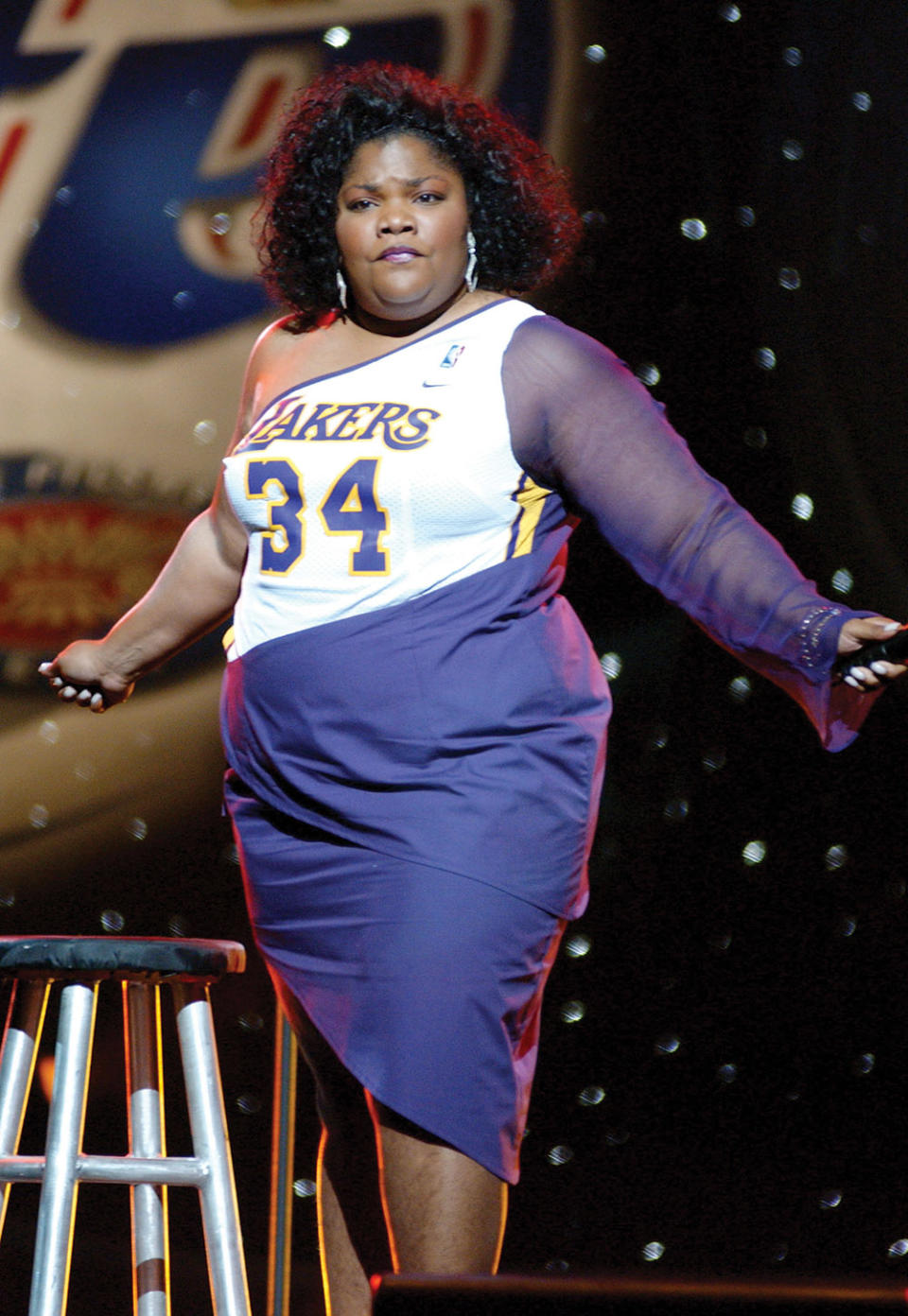
“Anytime somebody’s been like, ‘Stay away from this person’ or ‘This person might not be easy to work with,’ I tend to be like, ‘Well, let me meet them and talk to them,'” Glover explains. “But she was like the easiest person to work with. I don’t try and make it racial, but I feel like most of the time, it’s like, ‘Well, if I don’t use them, where are they going to go?’ Like, ‘Where are you going to put Mo’Nique?’ I felt it was worth a shot.”
Adds Glover, “I definitely want to work with her again. I mean, she’s a joy to work with, you know? You don’t find a lot of people who have the chops for improv the way she does.”
Says Mo’Nique: “It felt really good to see this beautiful young Black man surrounded by other beautiful young Black men on his team. It was a breath of fresh air to be on a production where everybody was just pulling for everybody.”
Glover wasn’t the only port in the storm. Mo’Nique credits another female comic — Roseanne Barr — for her loyalty. “Through the years, that woman has been right there,” she says of Barr, whom she met in 2009 when Barr was a guest on The Mo’Nique Show. “Never flinching, never wavering. We didn’t get caught up in what anybody else thought or anybody else said. I’m grateful for our friendship.”
During Barr’s racial firestorm, after she tweeted a comparison of former Barack Obama senior adviser Valerie Jarrett to a character from Planet of the Apes, resulting in her firing from Roseanne by ABC, Barr urged Mo’Nique not to get involved.
“She didn’t want me to get hurt defending her,” Mo’Nique explains. “I said, ‘I will stand for right, all day long. Whatever happens with us standing with my sister named Roseanne Barr, let the chips fall where they may. But what I will not do is turn my back on somebody that I know is not a racist.”
Recalls Barr, “She has the most soothing presence and voice and she just really comforted me with understanding. And I needed it, too. She heard me. And she knew me. It was a real scary time. And she came out for me like nobody has. I see her attacked all the time. It just makes me so damn mad,” Barr says. “When I feel something’s not right, I’m going to say it, and I do. And sometimes that’s not an appreciated thing from a woman who’s not in lockstep with power. Mo’Nique’s that way, too.”
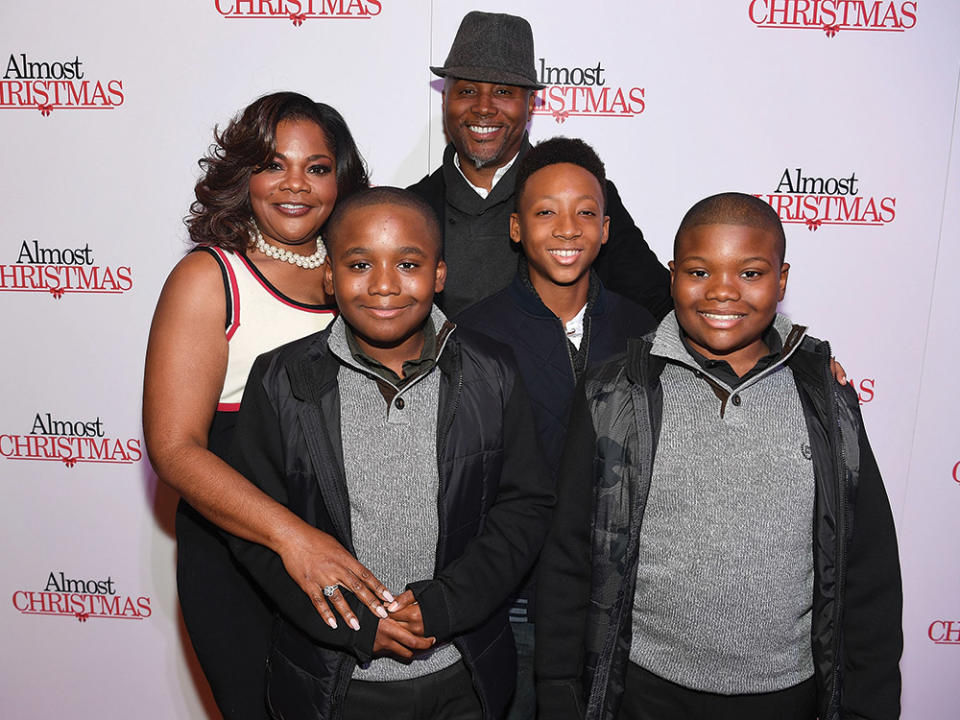
***
Hicks and Mo’Nique met in 10th grade at Randallstown High School in suburban Baltimore. “Our energies and spirits just connected,” she says. First they became best friends. Then roommates. One day, Hicks leaned toward Mo’Nique while sharing a bathroom mirror and gave her a kiss on the lips. “That’s been over 16 years ago and we’ve not been apart since,” she says. Eventually, Mo’Nique asked him to be her full-time manager. “He’s the best manager that I’ve ever had,” she says. “And I’ve had the big boys.”
Mo’Nique is aware of Hicks’ reputation for being almost too present, too involved, too hard-line where maybe a softer touch is required. (She requests that Hicks sit beside her for much of our time together.) She’s unbothered by it all. “I did an interview one time and a young Black woman said to me, ‘Aren’t you nervous to have your husband here? Won’t that make you appear weak?'” she recalls. “I said, ‘That breaks my heart that you would even think that.'”
On the subject of their open marriage, which they’ve discussed at length on their podcast Mo’Nique & Sidney’s Open Relationship, they say it was Mo’Nique’s idea originally, but both have calmed down with their extramarital activities. “Life began to happen,” she says. “I began to see a strength I had never seen before. He loved me at my worst. I didn’t want to sacrifice that just for a lay. So I grew out of that.”
The path to Mo’Nique and Daniels’ rapprochement runs directly through Hicks, as all Mo’Nique’s dealings do. But it also runs through Houston. That’s where an independent filmmaker named Courtney Glaude hails from. Glaude wrote the script for The Reading — about a seance that turns into a bloodbath — with Mo’Nique in mind. To get it to her, he made a barter with a fellow screenwriter: In exchange for a pitch deck — a photoshopped presentation used to sell films — the screenwriter would give him Hicks’ email.
In the ensuing exchange, Hicks asked what motivates Glaude, and Glaude said he does everything for his young daughter, which got through to Hicks. He agreed to read the script, which he then passed along to Mo’Nique. “I had never seen anything like it before,” Mo’Nique recalls of her first brush with The Reading. “We were like, ‘This is incredible.’ So I went to Houston for a week and filmed this movie.'”
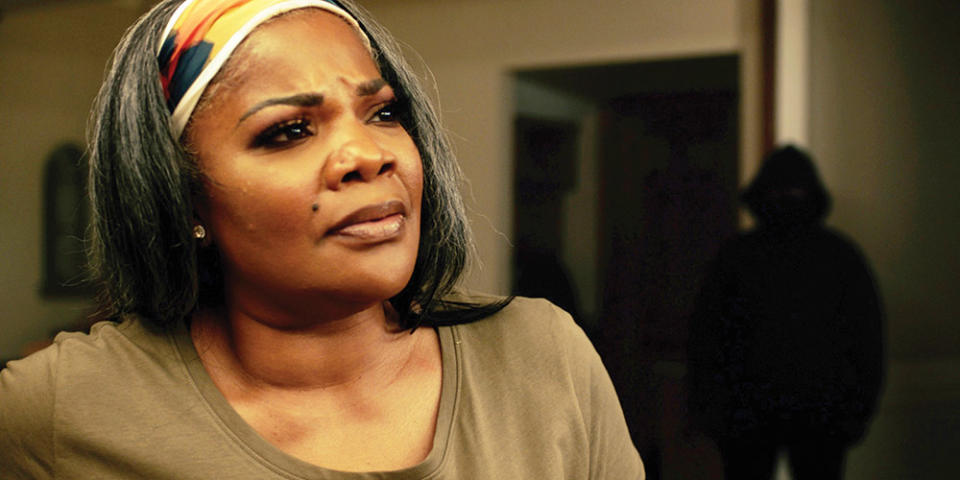
The film shot at the height of the pandemic in December 2020. Glaude then sent the Hickses a cut. Unimpressed, they told him to go back to the editing bay and do it again.
And so — unbeknownst to Mo’Nique — Glaude contacted Lee Daniels’ producer Simone Sheffield, asking if the director might take a look at his film (which just happened to star Mo’Nique) and give him some pointers on how to make it better. To Glaude’s amazement, Daniels agreed.
“He worked on The Reading for over five months with me,” Glaude says. “He showed me how to nourish the story. He’d be like, ‘Why is this scene here? You already said that.'” Daniels helped Glaude reshape and streamline the film down from 128 minutes to a taut, gripping 90.
In a phone call with Daniels, I mention how touching I found that scenario: He in a dark editing bay for hours at a time, helping shape his estranged muse’s performance, all without her knowledge of him doing so. There was something almost cinematic about it.
“It’s so beautiful,” Daniels concurs. “And in that footage I saw the woman that I worked with some 13 years ago. But I realized how much I loved her. And I realized how talented she was.”
Recalls Mo’Nique, “We hadn’t heard back from Courtney for months, maybe a year. Then we finally get the film back and it’s incredible.”
Not long after that, the phone rang: It was Daniels. “Not only did I want to reach out to her,” he explains, “but I realized I wanted to work with her again. It’s crazy, sometimes, how life is.”
Mo’Nique was stunned to hear Daniels’ voice after 13 long years. “He says, ‘Do you know I had to sit with your ass for five months?'” she says with a laugh. “For five months he edited the film. And he says to me and my husband that night, ‘Guys, I don’t want anything for it. Mo, I’m just glad I could do it. And I’m proud for the performance that you did.’
“He did not have to edit this film,” she continues, still visibly moved by the gesture. “So we asked Lee if he would take a producer credit and give him a percentage of the film. Because what he did was beautiful. I think that speaks volumes. It really does.”
In the same phone call, Daniels offered Mo’Nique the role in The Deliverance. “He was like, ‘OK, so I want to talk to you about this part.’ I said, ‘Lee, we can’t talk about a part until we talk.’ And he was like, ‘I know.’ And then we had a real conversation. That was the moment that he said, ‘I’m going to apologize to you and your family for anything I’ve done to hurt y’all.’
“And what I said to him was, ‘I appreciate that and we are grateful for the apology. But because it happened publicly, you have got to apologize publicly.’ And you know what he says? ‘Tell me when and where,'” she says.
Adds Daniels, “There was no way that I was not going to apologize for anything that she thought that I did to her.”
A few days later, he stood alongside Mo’Nique at Staten Island’s St. George Theatre, saying, to whoops of approval from the crowd, “I am so sorry for hurting you in any way that I did. She was my best friend. My best friend. [Precious] was God working through both of us. And we’re going to fuckin’ do it again.”
Says Mo’Nique of that moment: “I don’t know if it’s ever been done in history — that a big Hollywood director came out and apologized to an actress for a wrongdoing.” Adds Daniels, “I’m just happy to have my friend back.”
Regarding her detente with Netflix, Mo’Nique says, “We sat down with our attorneys, they had their attorneys, you go to mediation, and we were able to come up with something that everybody was good with. I think when adults come together in the room and sit down and have a reasonable conversation and a logical conversation, you work things out.”
“Mo’Nique is an incredible talent who has proven herself across TV and film, winning well-deserved acclaim for projects spanning genres from comedy to drama,” says Tracey Pakosta, Netflix vp comedy series. “She’s built a loyal audience over the years, and we think her fans will love these new Netflix projects.”
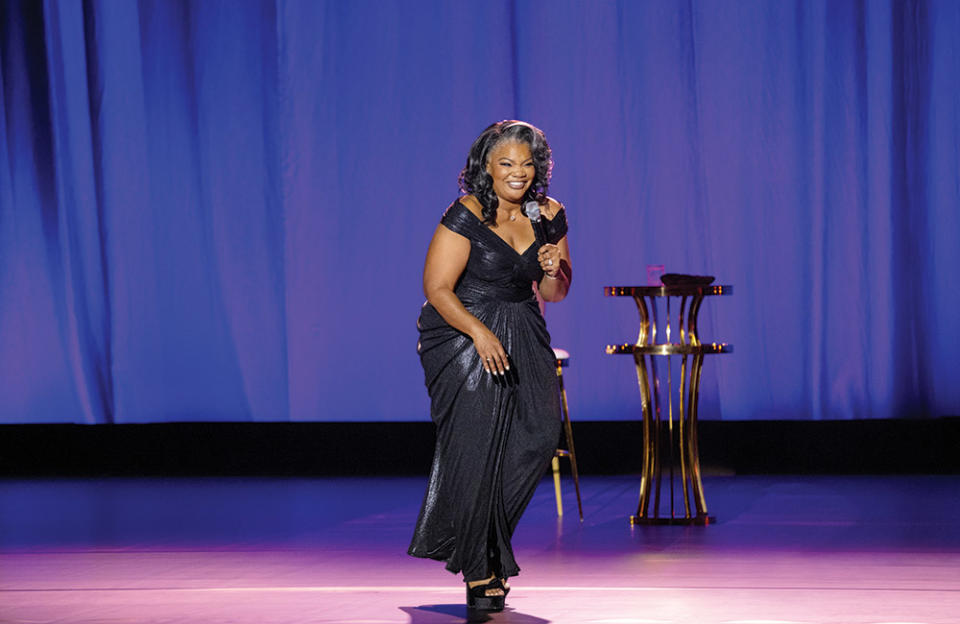
Of course, not all of Mo’Nique’s feuds have been resolved. She still demands and expects public apologies from Winfrey and Perry, who fall radio silent whenever the subject turns to her. (One exception was during a 2018 interview promoting A Wrinkle in Time, when, asked about negative remarks made about her by Donald Trump and Mo’Nique, Winfrey responded: “It’s a law that when you meet negative with negative, you just have a combusted negative force of negative energy. You have to rise above it. You have to transcend it. You have to be the light. And it only takes a little bit of light to banish the darkness.”)
She’s also at war with D.L. Hughley, after they squabbled over top billing at a show in Detroit last June. Things escalated quickly, with each side posting its contracts on social media. “I can’t tell you how many female comedians have had to deal with that,” she says. “‘Just because I’m a man, I’m supposed to go headline the show.’ Well, no, that’s not the case.” During their heated exchanges, Mo’Nique surfaced a news story involving a Hughley family member and an alleged sexual assault, insinuating that he did not stand up for his family; backlash led to a public apology from Mo’Nique to Hughley’s family, but not the comedian: “I meant every motherfucking thing I said [about him],” she said in a concert appearance. Hughley would not comment for this story.
The star is ever vocal — especially when she believes she is standing up for what is right.
At one point during last summer’s location shoot in Pittsburgh of The Deliverance, Mo’Nique and Daniels took a stroll along the Ohio River. “We were taking in the beautiful scenery,” she says. “And Lee looks at me and says, ‘Why didn’t you just shut up during all those years?’ And I said, ‘Had I shut up, you and I wouldn’t be walking down this river.'”
This story first appeared in the March 8 issue of The Hollywood Reporter magazine. Click here to subscribe.
Best of The Hollywood Reporter
Eight Actors Who Have Played Willy Wonka in Films and on Broadway
Martin Scorsese’s 10 Best Movies Ranked, Including 'Killers of the Flower Moon'

